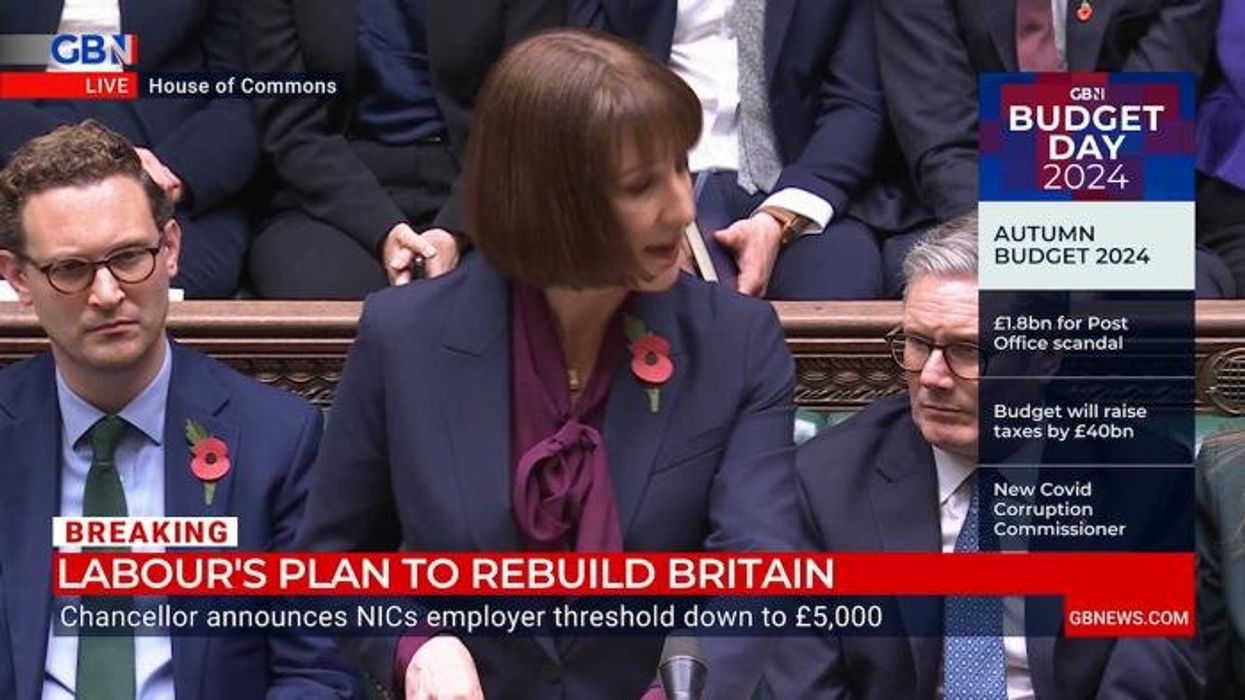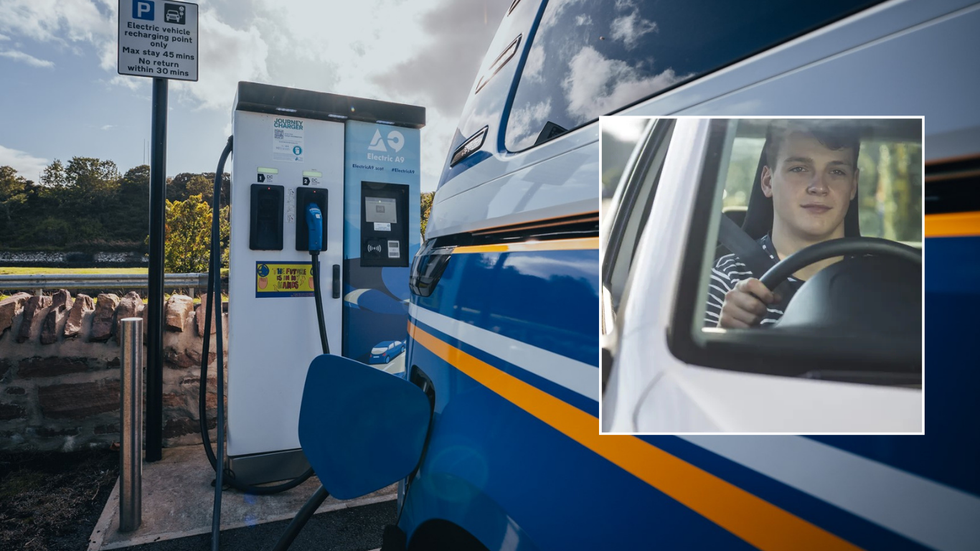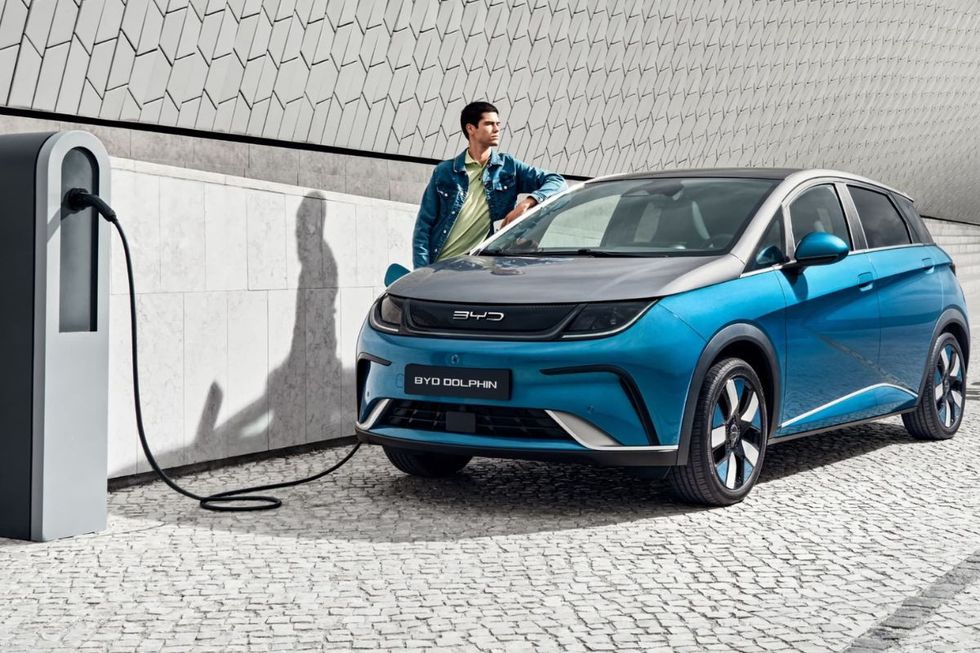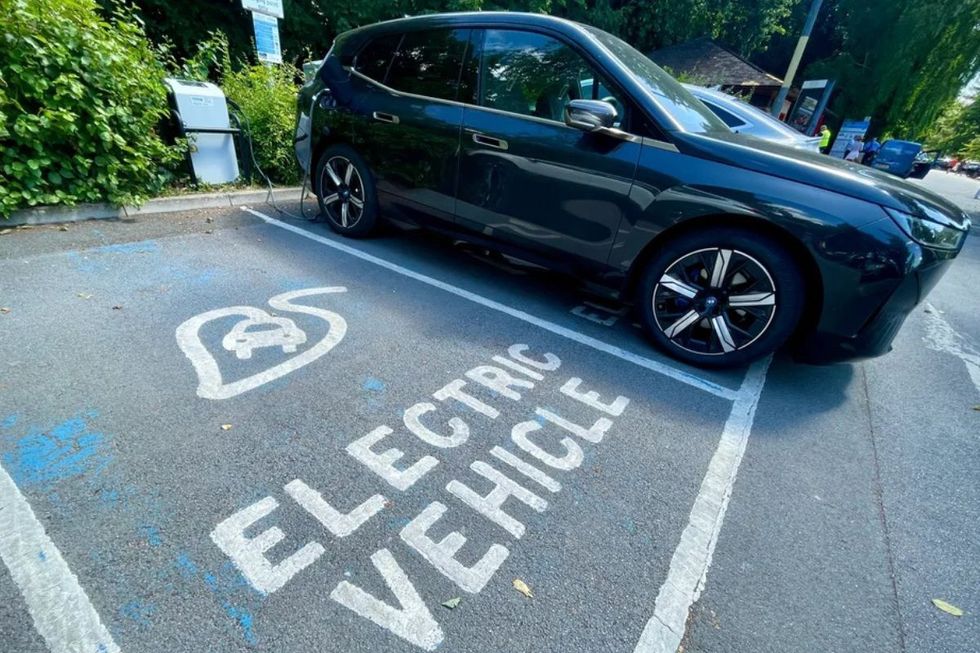Young drivers to help Labour meet electric car targets as over 55s refuse to give up petrol and diesel models

WATCH: Rachel Reeves says she will continue to support the purchasing of electric vehicles
|GB NEWS

Data revealed that two in five drivers would buy an electric car as their next vehicle
Don't Miss
Most Read
Younger motorists are twice as likely to adopt electric cars compared to older drivers, who often express reluctance to give up petrol and diesel vehicles.
Fresh research revealed that almost 20 per cent of motorists aged between 18 and 34 intend to purchase a fully electric vehicle as their next car.
This contrasts sharply with just 11 per cent of drivers aged over 55 who are considering making the switch to battery electric vehicles.
The divide extends to low emission vehicles more broadly, encompassing both battery-electric and hybrid models.
Among younger motorists, 42 per cent indicate their next vehicle will be either electric or hybrid, whereas the over-55 age group, however, this figure drops to 36 per cent.
Britain's overall shift towards electric vehicles has plateaued, with 38 per cent of motorists planning to make their next purchase either electric or hybrid.
This proportion has remained unchanged for two consecutive years, according to the Kwik Fit study.
The stagnation comes despite remarkable growth in electric vehicle registrations. Battery electric cars accounted for 47 per cent of all new vehicle registrations in the UK this year, according to industry data.

The report found that 42 per cent of young drivers would buy an EV as their next car
|PA/KWIK FIT
The push towards more electric cars has been growing in the past few years, with the Zero Emission Vehicle mandate moving steadily along. Under the mandate, 28 per cent of all new car sales are required to be electric by this year, before moving to 100 per cent in 2035.
The disconnect between actual market performance and consumer intentions has highlighted a complex picture, experts warned.
While new electric vehicle sales have surged, driven by fleet purchases and manufacturer investment, individual motorists' plans to switch have not kept pace with this market transformation.
More than half of drivers aged 18-34 expressed a willingness to purchase a second-hand electric car, while only 18 per cent of drivers over 55 shared this openness.
LATEST DEVELOPMENTS

BYD saw an 880 per cent surge in UK sales in September
| BYDThe value perception gap proves equally striking, with roughly 42 per cent of younger motorists believing that second-hand electric vehicles offer superior value compared to similarly priced petrol or diesel alternatives.
Amongst the over-55 demographic, only nine per cent share this view, with almost half actively disagreeing that used electric cars represent better value.
Dan Joyce, operations director at Kwik Fit, characterised the findings as revealing "a multi-speed transition to electric vehicles which varies between age groups".
He added: "It’s also interesting to see them much more willing to buy a used EV, especially as we are seeing more vehicles moving out of the fleet sector into private ownership."

Young drivers have expressed more openness to buying a second-hand electric vehicle
| GETTYThe generational divide extends to attitudes towards Chinese-manufactured electric vehicles and emerging automotive brands.
Roughly 43 per cent of drivers aged 18-34 indicate they would be more inclined to purchase a Chinese-made electric vehicle than a petrol or diesel car from China.
This contrasts sharply with only 14 per cent of over-55s expressing similar openness to Chinese electric vehicles, highlighting another substantial gap in acceptance.
Chinese electric vehicle manufacturer BYD experienced an 880 per cent surge in UK sales during September compared to the previous year, with younger buyers likely driving this growth.
The research also revealed that 42 per cent of younger motorists are prepared to consider electric vehicles from unfamiliar manufacturers, compared to their willingness to buy unknown petrol or diesel brands.










